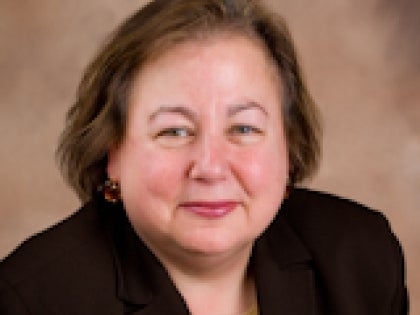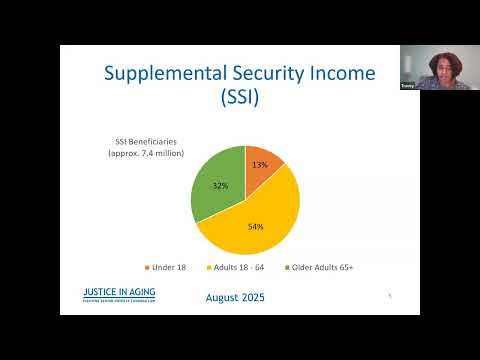
Community Bulletin - January 2011
Liz Krueger
January 13, 2011
-
ISSUE:
- Seniors
- Constituents Corner
Message from Liz . . .
A Note About Arizona: We were all shocked and saddened by the violent rampage targeted against a Congresswoman, her staff and other bystanders earlier this month. Much that is right and wrong has already been written about who, beyond the deranged gunman, bears any level of responsibility for this tragedy. The one thing that really weighs on my mind is: why does it remain so easy for the wrong people to get guns and munitions in this country? What if the same man in the same situation only had the use of his fists?
As the new legislative session starts, with a new Governor at the helm, I feel that it is within our grasp to see real progress in Albany and change in the way we govern this State. Some would say I am just a cockeyed optimist – but isn’t that what representative democracy is all about? Government’s job is to right the wrongs, and constantly adapt to new needs. There is much to be done, and people who don’t have a vision for fixing things aren’t likely to accomplish much.
I attended Governor Andrew Cuomo’s first State of the State Address on January 5th, and it was clear that everyone was on message about the need for real reform. Leaders from both houses and both parties applauded the Governor’s calls for the re-engineering of government and the implementing of a variety of important reforms. Whether that consensus will last as we move from rhetoric to actual governing remains to be seen, but at least everyone is acknowledging the seriousness of the situation in which we find ourselves.
Personally, I found much to agree with in the Governor’s speech. I have always been a strong voice in the Legislature pushing for campaign finance reform, redistricting reform, ethics reform and marriage equality, all key pieces of the Governor’s agenda. I am also hopeful that as the Governor works to address the serious deficit we face, we will finally be able to reform our budget process, putting in place a system that will prevent the kind of poor decision-making that helped get us into this mess.
While most of the details regarding the Governor’s plan to address our deficit won’t become clear until he releases his budget later this month, it appears he wants to explore a fundamental reevaluation of both State programs and agencies. I share the belief that we need a new vision appropriate for the 21st century. We must redefine what role the government plays in helping make people’s lives better, while also offering better models of economic development to support the next generation of New Yorkers. In doing this, we must never forget that one of the greatest responsibilities the government holds is protecting and providing for those in greatest need during tough economic times.
Of course, I also have other priorities beyond what was mentioned in the State of the State – the most important being the renewal of rent regulation laws on terms that protect affordable housing in New York City. With the laws set to expire in June, it is critical that we act on their renewal with strengthened protections for tenants sooner rather than later.
I also continue to believe that a more progressive tax structure should be part of the solution to our budget situation. A fair question to raise today, given the fact that the Feds didn’t allow the Bush-era high-income tax cuts to sunset, is whether we should be giving the wealthiest New Yorkers a State tax cut too, which will happen if New York does not extend its high income surcharge. During these difficult financial times sacrifices must be shared by all. I would have far preferred that the Federal Government done the right thing with tax policy, which would have avoided the problem of “border wars between the States over marginal income tax rates.” But they did not, and as a result all the States (most of which are in equally bad shape for revenue) are left with the reality that they will not see much-needed revenues from Washington for at least the next two years.
If all the leaders who are talking the talk now actually follow through past opening day rhetoric and change the way we do business in Albany, then we can accomplish great things for the 19 million residents of our State.
Senator Liz Krueger’s Senior Roundtable
A Program for Boomers & Seniors
“Preparing for Long-Term Care”
Part III of A DISCUSSION ABOUT CAREGIVING
This will be the third of a five-part discussion for caregivers and the older people in their lives.
Thursday, January 27th, 2011
8:00 a.m. – 10:00 a.m.*
Lenox Hill Neighborhood House
311 East 70th Street
(between 1st & 2nd Avenues)
With Special Guests:
Vivian Gallo, CLU, CSA, Long Term Care Planning Specialist
Mia Kandel, Esq., Director of Housing, Lenox Hill Neighborhood House
Martin Petroff, Esq., Elder Attorney
*Continental Breakfast will be served
PLEASE RSVP – SPACE IS LIMITED
To RSVP or for further information, contact
alicefisher.nyc@gmail.com or call (212) 490-9535.
Make A Health Care Proxy Your New Year’s Resolution:
During the beginning of the new year, while New Yorkers vow to exercise and eat healthier, save more money and cut down on the amount of reality TV shows watched, I urge you to fill out a Health Care Proxy, a resolution that will bring comfort and clarity to end-of-life decisions. A Health Care Proxy (or some other form of Advance Directive), enables you to make important decisions about your health care planning, particularly regarding end-of-life care. This is one New Year’s resolution that will take less than ten minutes to complete.
Although it is a topic many find difficult to contemplate or discuss, planning for a time when you may be physically unable to voice your preferences for healthcare options is necessary. Particularly when you’re young it’s easy to not to think about it at all, but the reality is that most people, young and old, do have strong opinions about what type of heath care they want to receive if something serious and unexpected happens. Failing to deal with these questions may leave you no opportunity to voice your opinions and leave your loved ones with even heavier burdens on your behalf.
To receive a copy of a legal Health Care Proxy or for more information, please contact my office at (212) 490-9535.
New SCRIE Clinics at Lenox Hill Senior Centers:
Lenox Hill Neighborhood House is now offering clinics to assist people with applications and re-certifications for the Senior Citizens Rent Increase Exemption (SCRIE). These clinics will be offered at the Lenox Hill Senior Center on 70th Street and the Senior Center at St. Peter’s Church at Lexington and 54th Street. Individuals who are 62 years or older, make $29,000 or less, and whose rent is at least one-third of their total income are eligible for SCRIE. Clinic appointments are available by prior registration ONLY. To sign up for the clinic, please contact (212) 744- 5022, ext. 1392.
Free Flu Shot Vouchers Available for Uninsured New Yorkers:
My office is participating in a new program offered by the Department of Health and Mental Hygiene to provide vouchers for free flu shots to uninsured individuals. The vouchers can be redeemed at Walgreens and Duane Reade pharmacies through April 15th, 2011. Vouchers may only be used by adults 18 and older who do not have health insurance. If you are interested in receiving a voucher, call my office at (212) 490-9535.
Free CUNY Conference for Minority and Women Owned Businesses:
The City University of New York (CUNY) and the City University Construction Fund (CUCF) are co-sponsoring the 2011 Minority & Women Owned Business Enterprise (M/WBE) Partners in Success Conference, which will take place on Friday, January 28, 2011 from 8:00 a.m. – 3:00 p.m. at Two Court Square Conference Center, 23-14 44th Road in Long Island City. During the conference attendees will:
• Find out how to do business with CUNY and CUCF;
• Network with representatives and decision-makers from participating colleges, CUNY’s Central Procurement Office, CUCF and other New York State agencies; and
• Learn how to become certified as a New York State Minority or Women Owned Business Enterprise;
• Discover the partnering opportunities available to firms for a wide array of commodities, services, construction, architectural and engineering projects.
To register or for more information, visit http://cunybiz.com or call (212)726-2211.
Report Steam Releases from Manholes:
Steam coming out of a manhole or sewer either means that there is a leak in the steam system or a leak in the water pipes and water is hitting the hot steam pipe. The steam coming up is not necessarily an emergency but it should be checked out by Con Ed to ensure it doesn’t indicate a dangerous condition. Con Ed has inspectors who check the system and who will go to the location reported. If you see steam coming up from underground on Manhattan streets, call Con Ed right away at (800) 75- CONED (752-6633). To avoid potential injury, do not walk through the steam or on the manhole cover.
Affordable Housing Opportunities in Manhattan:
The Balton is now accepting applications for 113 studio, one-, two- and three-bedroom apartments under construction at 311 West 127th Street in Harlem for moderate income individuals and families. Rents for these units will be $1,492 to $2,609 depending on unit size and income. To be eligible, applicants must have incomes between $52,937 to $160,825, depending on unit and family size. Applications will be selected by lottery. Applicants who submit more than one application will be disqualified. Preference will be given to New York City residents. Applicants residing in Community Board 10 will receive priority for 50% of the units. In addition, visually/hearing impaired applicants will receive priority for 2% of the units, applicants with mobility impairment will receive priority for 5% of the units, and applicants who are New York City municipal employees will receive preference for 5% of the units. Qualified applicants will be required to meet income guidelines and additional selection criteria. To request an application, download from: www.thebalton.com or mail a postcard to: The Balton c/o Richman Property Services, Inc., 401 Lenox Ave., New York, NY 10027. Completed applications must be returned by regular mail only (no priority, certified, express or overnight mail will be accepted) to a post office box listed on the application, and must be postmarked by January 31th, 2011.
Hope Community Inc. is now accepting applications for 18 one-, two- and three-bedroom apartments under construction at 162-168 East 122nd Street, 176-180 East 122nd Street, 127 East 119th Street and 1642 Park Avenue in the East Harlem Section of Manhattan for low and moderate income individuals and families. Rents for these units will be $660 to $1127 depending on income and unit size. To be eligible, applicants must have incomes between $26,640 to $55,140, depending on unit and family size. Applications will be selected by lottery. Applicants who submit more than one application will be disqualified. Preference will be given to New York City residents. Applicants residing in Community Board 11 will receive priority for 50% of the units. In addition, visually/hearing impaired applicants will receive priority for 2% of the units, applicants with mobility impairment will receive priority for 5% of the units, and applicants who are New York City municipal employees will receive preference for 5% of the units. To request an application, mail a self-addressed envelope to: Calvert Apartments, LLC c/o Hope Community, Inc., 174 East 104th Street, New York, NY 10029, or download from www.hopeci.org. Completed applications must be returned by regular mail only (no priority, certified, express or overnight mail will be accepted) to a post office box listed on the application, and must be postmarked by February 22nd, 2011.
Heat Season Rules:
The City Housing Maintenance Code and Multiple Dwelling Law requires building owners to provide heat and hot water to all tenants. Building owners are required to provide hot water 365 days per year at a constant minimum temperature of 120 degrees Fahrenheit. Between October 1st and May 31st, a period designated as "Heat Season," building owners are also required to provide tenants with heat under the following conditions:
• Between the hours of 6AM and 10PM, if the outside temperature falls below 55 degrees, the inside temperature is required to be at least 68 degrees Fahrenheit.
• Between the hours of 10PM and 6AM, if the temperature outside falls below 40 degrees, the inside temperature is required to be at least 55 degrees Fahrenheit.
Tenants who are cold in their apartments should first attempt to notify the building owner, managing agent or superintendent. If heat is not restored, the tenant should call the City's Citizen Service Center at 311. For the hearing impaired, the TTY number is (212) 504-4115. The Center is open 24-hours a day, seven-days a week.
Cooperative and Condominium Ombudsman
In response to numerous constituent complaints about the lack of a resource for co-op shareholders and condo owners to turn to for assistance in resolving issues in their buildings, I have introduced legislation to establish a Cooperative and Condominium Ombudsman. S.395 would create the Ombudsman in the Attorney General’s Office. While the Attorney General currently has a role in overseeing conversion, the office is currently installed with little power to address issues that arise after conversions are completed.
The rights of condominium owners and cooperative shareholders are currently derived from a complex series of laws, regulations, and individual building by-laws and other corporate documents. Although these statutes and rules grant owners and shareholders some rights, the boards of directors in cooperatives, and boards of managers in condominiums, have a great deal of discretion over most issues involved in the daily management and operation of their buildings.
While most cooperative and condominium boards act in the best interest of their buildings and are financially prudent and responsive to the needs of shareholders and unit owners, significant problems arise for residents
when this is not the case. Many difficulties also emerge when boards of directors and managers are unable or unwilling to remedy disputes between residents; this often leads to the diminution of quality of life in the building and significant tension between neighbors. Disputes regarding transparency, finances, board elections, management decisions, rules and regulations, construction, and other issues between individual residents, as well as between residents and their boards, are all too common.
Because there is no government agency or other entity which oversees the operation of cooperatives and condominiums, shareholders and unit owners are left with only two options when serious problems develop: to organize other residents to change the board of directors or managers, or to initiate legal action against the board or another shareholder or unit owner. Understandably, neither of these options is easy or appealing for most residents.
The Ombudsman’s Office established under this legislation would create another route for addressing the concerns of shareholders and owners. The Ombudsman would work to educate shareholders of cooperatives and owners of condominiums, their boards of directors and boards of managers, professionals working with and for such boards,
property managers, and other interested parties about their legal rights and responsibilities under Federal, State and local laws and regulations. Other responsibilities of the office would include providing mediation and other forms of alternative dispute resolution, and offering monitors and vote-counting services to ensure fair elections for board membership. The Ombudsman would also be authorized to propose legislation to improve oversight of coops and condos.
Several other States, such as Florida, Nevada, Texas, and New Jersey have created Condominium Ombudsman Offices to address similar challenges in their States. New York is unique in having both cooperative and condominium housing. New York State has one of, if not the, largest number of cooperatives and condominiums in the nation. In parts of the State, and certainly in my district, cooperative shareholders and condominium owners substantially outnumber owners of single- and two-family homes. These residents would see significant benefits from the creation of a New York State Cooperative and Condominium Ombudsman Office.


